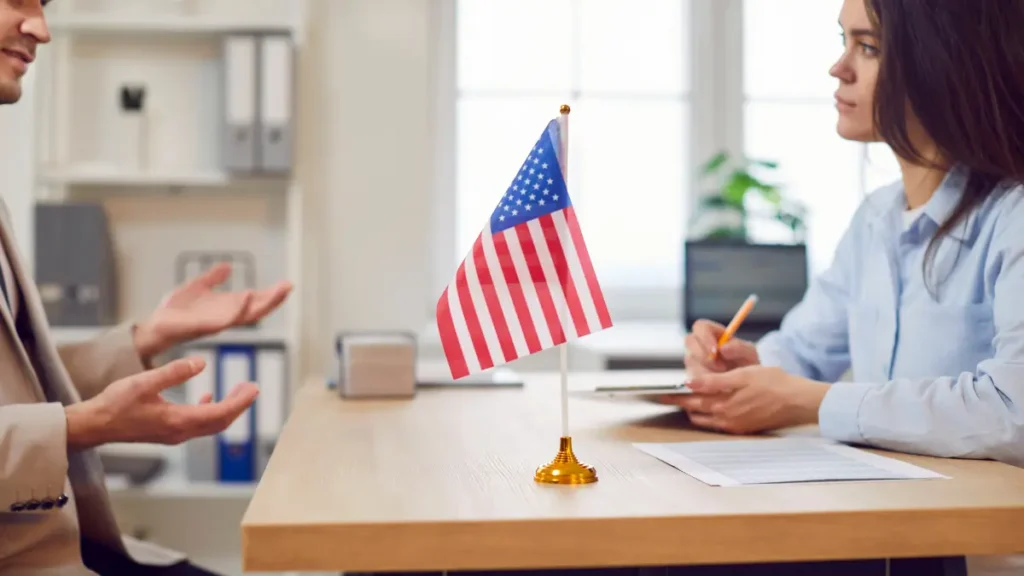For many Nigerian non-governmental organisations, the United States Mission to Nigeria represents a significant and highly sought-after source of funding. These grants can provide the critical resources needed to launch impactful community projects, promote democratic values, and create lasting change.
However, the process of applying for these funds can often seem opaque, confusing, and different from other foundation grants. Many capable NGOs are unsure where to look, how to start, or what makes a proposal successful.
This guide will demystify the process. As of Wednesday, July 30, 2025, a clear understanding of the available funds and the specific application procedures is essential. We will provide a practical, step-by-step roadmap to understanding and successfully applying for US Embassy Grants in Nigeria.
Understanding the Source: Embassy Grants vs. USAID
First, a crucial clarification. While both are part of the U.S. government, grants offered directly by the U.S. Embassy and Consulate are different from those offered by USAID.
- Embassy Grants: These are typically smaller, managed directly by the Embassy’s Public Affairs Section or other specific departments, and focus on public diplomacy, community self-help, and specific policy goals. They are often more accessible for smaller, local NGOs.
- USAID Grants: These are generally much larger, more complex, and part of broader, multi-year development strategies. They often have more stringent compliance and reporting requirements.
This guide focuses on the first category: grants managed directly by the U.S. Mission.
Key Funding Opportunities from the U.S. Mission in Nigeria
The Embassy offers several distinct funding streams. Knowing which one to target is key.
1. The Public Affairs Section (PAS) Grants
This is the most common source of funding. PAS grants are designed to support the U.S. Mission’s public diplomacy goals. This means they fund projects that increase mutual understanding between Nigerians and Americans, support a free press, promote democratic participation, empower women and youth, and counter misinformation. Your project must clearly align with these foreign policy objectives.
2. The Ambassador’s Special Self-Help (SSH) Fund
The SSH Fund is a popular small grants program that provides assistance directly to community-based organizations (CBOs) for short-term, high-impact projects. The focus is on self-reliance. Projects must be community-driven, with significant community contribution in the form of cash, labour, or materials. Examples include building a borehole, equipping a primary health clinic, or providing vocational equipment for a community centre.
3. Other Thematic and Alumni Funds
The Embassy often releases special calls for proposals focused on specific themes (e.g., environmental protection, health via PEPFAR) or targeted at alumni of U.S. government exchange programs (like YALI, IVLP, etc.).
Your Step-by-Step Guide to Applying
Step 1: Monitor the Official Embassy Website Religiously
All grant opportunities are announced through a Notice of Funding Opportunity (NOFO). These are published exclusively on the official U.S. Embassy website. This is your primary source. Bookmark it and check it weekly.
The Official Source: U.S. Embassy and Consulate in Nigeria’s Grants Page
Step 2: Get Your Registrations in Order (SAM.gov is a MUST)
This is a non-negotiable step that trips up many first-time applicants. To be eligible for almost all U.S. government grants, your organization must have an active registration on the System for Award Management (SAM.gov).
Warning: The SAM.gov registration process is free, but it can take several weeks to be approved. You must start this process long before you even see a grant you want to apply for. Do not wait until a deadline is announced.
From Monitoring to Mastery: Never Miss an Opportunity
Constantly monitoring the Embassy website, SAM.gov, and other sources can be a full-time job. How can you ensure you never miss a NOFO while still running your programs? This is where a targeted intelligence platform provides a crucial advantage. At grantsdatabase.org, we monitor funding announcements from the U.S. Mission and other key donors. We filter the noise and alert you to the opportunities that match your specific mission, saving you time and ensuring you’re always prepared.
Step 3: Align Your Proposal with U.S. Policy Goals
For PAS grants in particular, your project is not just about doing good; it’s about helping the U.S. Mission achieve its goals in Nigeria. Read the NOFO carefully to understand the specific policy objective. If the goal is “promoting press freedom,” your project must directly address that. Your proposal should use language that shows you understand and align with their strategic priorities.
Step 4: Write a Clear, Concise, and Compliant Application
U.S. government grant applications value clarity and directness.
- Answer the questions directly. Follow the structure outlined in the NOFO precisely.
- Create a realistic budget. Ensure all costs are reasonable and well-justified.
- Proofread everything. Typos and grammatical errors signal a lack of professionalism.
Conclusion
Winning US Embassy Grants in Nigeria is highly achievable for well-prepared and strategic organizations. Success hinges on three key principles: preparation (getting registered on SAM.gov early), alignment (choosing the right fund and linking your project to U.S. policy goals), and professionalism (submitting a clear, compliant, and error-free application). By following this guide, your NGO can confidently navigate the process and unlock a powerful source of support for your vital work.
